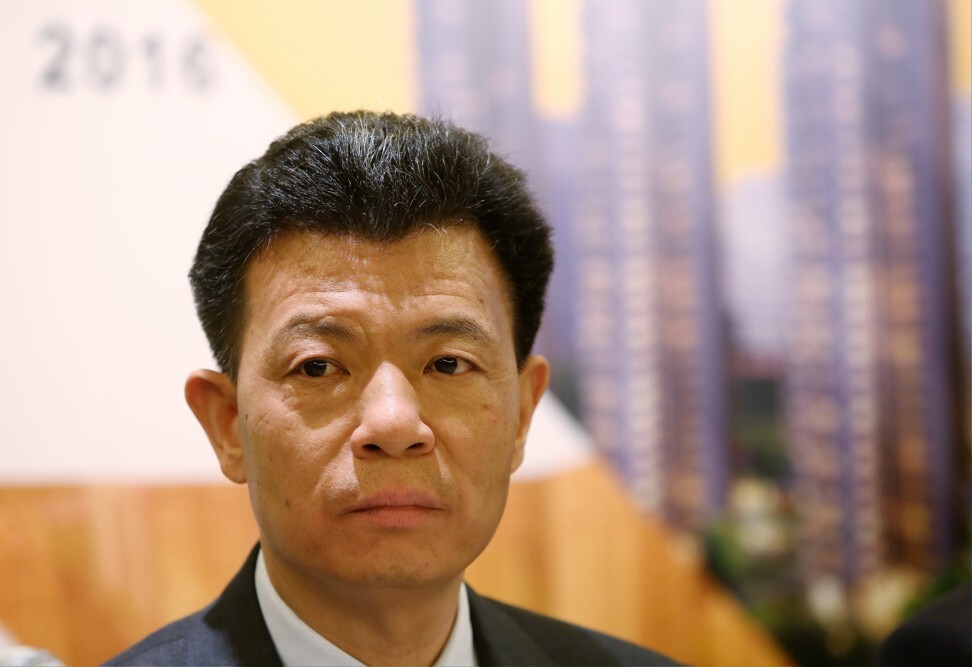
Shares of Kaisa units tumble in Hong Kong even as they distance themselves from the travails of their indebted parent
- Kaisa Prosperity Holdings fell 10.6 per cent to HK$13.50, while Kaisa Capital plunged 10.9 per cent
- Kaisa Health, which makes dentures, was the contrarian, jumping by almost 26 per cent
The shares of two units of China’s Kaisa Group plunged to multi-year lows in Hong Kong after emerging from a seven-day trading halt, even as they tried to draw a distance from their embattled parent, which has missed payments on an offshore bond and high-yielding financial products.
Kaisa Prosperity Holdings retraced 10.6 per cent to HK$13.50 as the management services unit clawed back some of its 16.6 per cent plunge, the biggest intraday drop since its 2019 initial public offering. Kaisa Capital Investment Holdings Limited fell 10.9 per cent to 41 Hong Kong cents, after tumbling by almost 22 per cent.
Kaisa Group, whose shares remained suspended in Hong Kong, missed two bond coupon payments due on November 11 and 12, two people familiar with the matter said. The company has been given 30 days to comply before bondholders are entitled to declare it in default, a move which could trigger cross defaults across all its offshore debt, and in the worst case set the stage for creditors to petition for its liquidation.
Kaisa Prosperity, 67.7 per cent owned by Kaisa Group, has not experienced any “material delay” in receiving payments for services rendered, and is not involved in any missed dividend payments by its parent, the company’s chairman Liao Chuanqiang said in a filing to the Hong Kong stock exchange before trading of its stock resumed.
Kaisa Health Group Holdings, which produces prosthetic dental products, was the contrarian, jumping almost 26 per cent to 12.2 Hong Kong cents when its stock resumed trading, after soaring by 39 per cent earlier.

Trading in the shares of Kaisa Group and its three subsidiaries was halted on November 5 after the company failed to make a payment on a high-yielding 12.8 billion yuan wealth management product a day earlier. That prompted Kaisa’s chairman to plead for more time in a video broadcast. A week later, the company announced that it would not pay shareholders an interim dividend as it was during “reviewing its financial position.”
Kaisa Group is reportedly seeking buyers for its property management unit, valued at around HK$2.42 billion (US$310.8 million). A 67.18 per cent stake in Kaisa Prosperity – equivalent to Kaisa Group’s controlling stake – was mortgaged on September 30 to Shandong High Speed Finance, in exchange for selling US$120 million of Kaisa Group’s notes to the state-owned financial company.
Kaisa Prosperity, spun off from its parent in 2018, manages property and installs equipment for Kaisa, where fees for the services made up less than half of its first-half revenue, the company said.
“Any liquidity issues faced by Kaisa Group would not have any material adverse impact on the operations of the company,” because Kaisa Prosperity has not received any financial help from its parent, it said.
For the six month ended June, Kaisa Prosperity’s net profit attributable to shareholders surged 75.6 per cent to 209.1 million yuan. It said in its interim report that such increase was attributable partly to long-term cooperation with its controlling shareholder Kaisa Group and its subsidiaries.
It is unclear whether Kaisa Prosperity could completely decouple itself from the liquidity crunch faced by its parent over the longer term.



